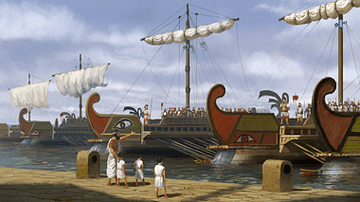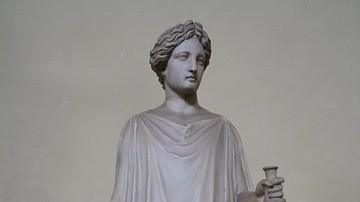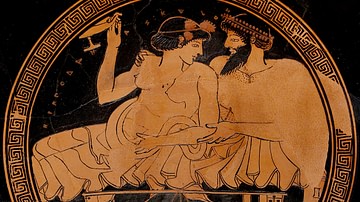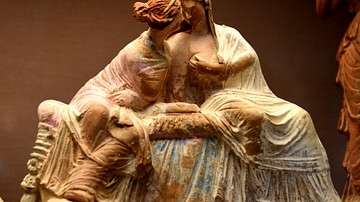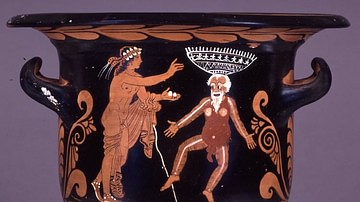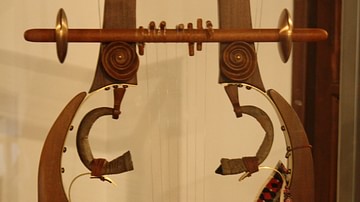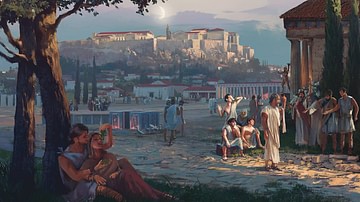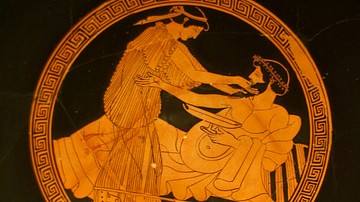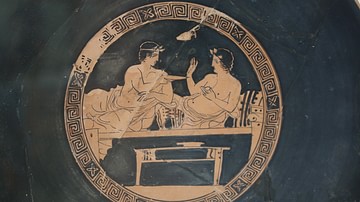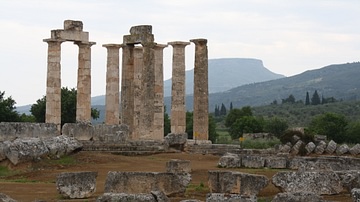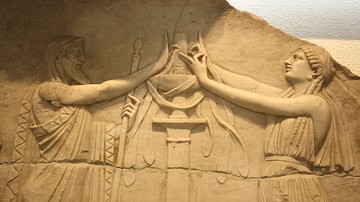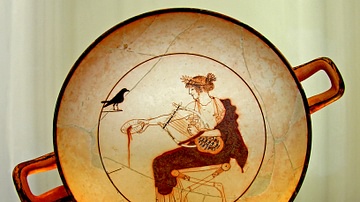The ancient Greeks kept themselves busy and there were plenty of chores, distractions and entertainments available to keep daily life varied. Shopping in the markets of the agora, performing jury service, watching sporting events or listening to the latest play kept the Greeks out of the house. There might, too, be religious rituals to watch, processions to see, and drinking parties to attend. In this collection of resources, we examine all the things the ancient Greeks got up to on a regular basis as well as related topics such as who was who in society, what kind of music was played and how people travelled from place to place.
After eating and drinking and the pouring of libations, the guests at a symposium might play games, listen to and perform music (especially the lyre), tell each other stories, give each other advice on daily problems, discuss politics and enjoy each other's company. Poetry recital was a common element. Guests were also encouraged to show off their own poetic and intellectual skills with off the cuff recitals and repartee. Drinking continued throughout the evening, usually through the passing around of a shared cup or kylix. Singing of songs was also popular and on occasion, the group of revellers (komos) even went out into the streets to continue their singing and dancing, no doubt to the annoyance of the neighbours.

